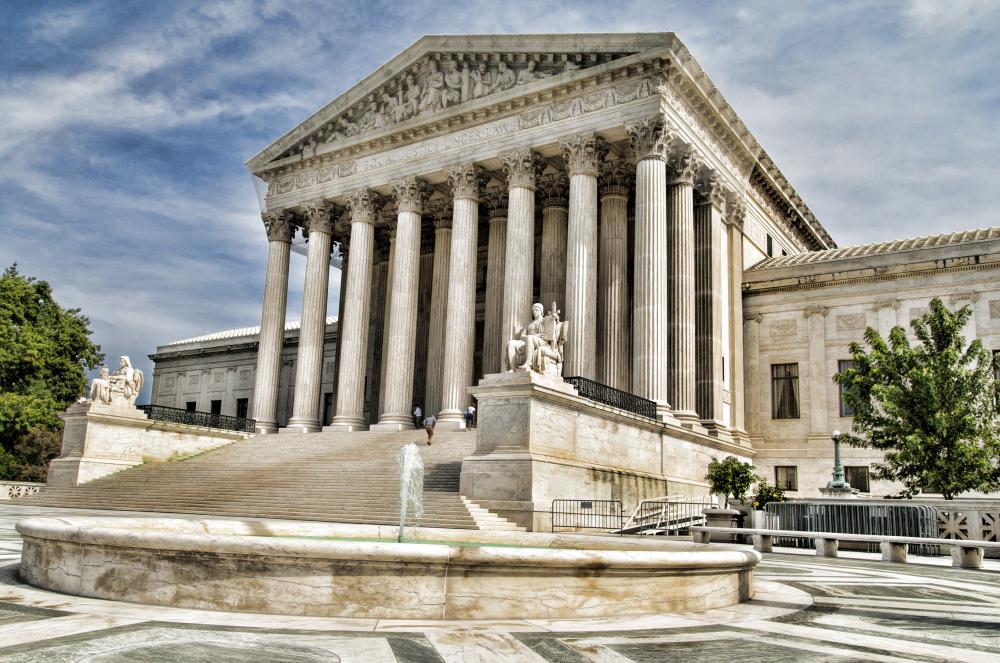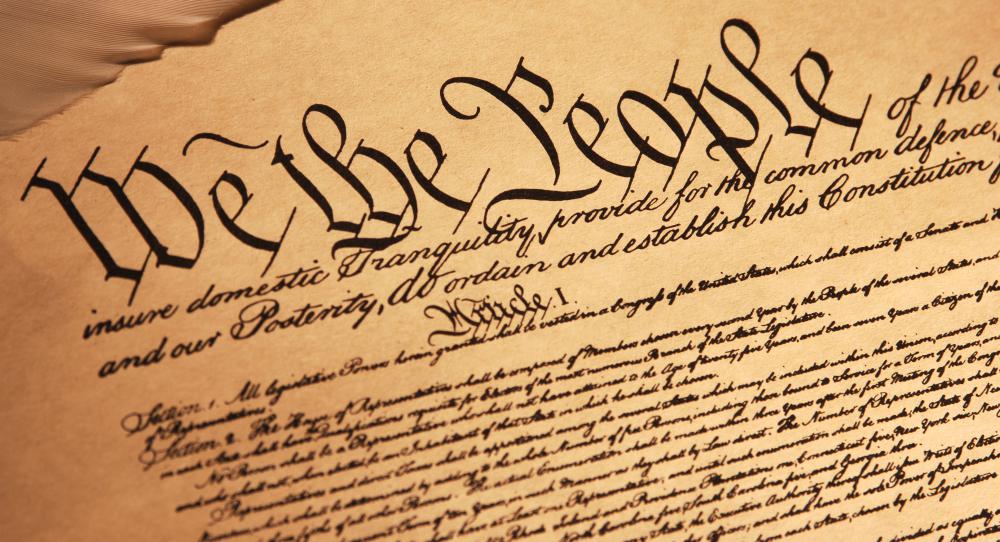At PracticalAdultInsights, we're committed to delivering accurate, trustworthy information. Our expert-authored content is rigorously fact-checked and sourced from credible authorities. Discover how we uphold the highest standards in providing you with reliable knowledge.
What is a Constitutional Lawyer?
A constitutional lawyer is an attorney who tries cases where constitutional issues are at stake. The Constitution is considered the Supreme Law of the United States, and is a form of federal law. Thus, most cases based on constitutional questions are tried in the federal court system.
Like any other law, the Constitution imposes certain mandates for behavior. The Constitution primarily imposes behavioral mandates on legislatures and courts and other law making bodies. The Constitution dictates that any law that is made must not violate a person's constitutional rights.

When a person believes his constitutional rights are being violated by a law, that person can raise a constitutional question. He can sue the law making party for the violation of his rights. If he believes some other entity is violating his constitutional rights, he can also sue that entity.
A constitutional lawyer will then represent the person who believes his constitutional rights are being violated. The constitutional lawyer will file suit in federal court on behalf of the person whose rights are violated. The cause of action will be based upon the rights set forth in the Constitution.

Each state has its own Constitution, and states are bound to uphold not only the federal constitution, but the state constitution as well. If a cause of action arises out of state law, the case will be brought in state court instead of federal court. In this situation, a lawyer who is an expert in the state constitution will be called upon to represent the plaintiff.
Regardless of whether the case is based on the federal constitution or the state constitution, a constitutional lawyer will need to prove that his client's constitutional rights are being violated. This can involve arguments regarding how various provisions of the constitution should be interpreted. It can also involve showing evidence as to how those rights were violated.
Many famous cases are based upon rights set forth in the constitution. For example, Roe versus Wade, the famous abortion case, is based on the Constitutional rights to due process of the law and to privacy. A constitutional lawyer argued this case on behalf of a woman who believed that denial of the right to an abortion constituted denial of her right to freedom, as set forth in the constitution.
Constitutional lawyers often argue groundbreaking cases that reach the Supreme Court. Lawyers must be well versed in legal interpretation, and must be able to support their legal arguments with references not just to the constitution, but also to past interpretations. Many lawyers who work on cases of constitutional importance work for legal aid organizations, or work on a not-for-profit basis to defend what are believed to be the nation's fundamental rights and freedoms.
AS FEATURED ON:
AS FEATURED ON:












Discussion Comments
The Constitution is for all! Not just these or those!
If a Law over rules the Constitution, the Constitution over rules that law! It's repeated under the law of immunity or the Law 1983, which should be interpreted as immunity against any law that overrules the Constitution or denies one their Constitutional rights!
Any law against any gun. As the words of protecting one's life or another's life, including their livelihoods or another's, states that we have the right to protect ours and others by any and all means necessary, even if it means using lethal force. This overrules just about every law that contradicts or contends with the people and their rights, even if they're not citizens.
Just as our laws regarding immigrants joining our militia, may do so, so long as they're "willing" to become a citizen.
So many things are out of step with our current landscape with in the scope of the supreme law of the land, that the people are uprising, organizing, and getting involved in Government politics than they normally would have ever needed to - were not witches, we shouldn't have to invoke a right - and we shouldn't have to plead for one either.
But here we are - decrepidating the law! As to say, if you don't ask for it to be upheld, it won't.
Eighth amendment is being broken by CIA, General Mattis, and who knows who else, concerning torture. We don't want any prisoners statements, lest they surrender and are willing to work with us.
We have most information. Aside from the facts of how many other things are flying under the radar and being pushed off to the side and quieted, due to privacy rights.
Cults! Satanic sacrifices and other lewd or pedophilia cases. All shunned. Like as if we're being attacked for more or less being these great Sons of Abraham the Jewish folks claim to be.
The so called Kabal or Khaballistic secret shadow government they say is running out government, is another term for the Sons of Abraham or Israelites. And, yet they show no sign of being anything other than deceivers, and all this after trying to take over Russia and Germany, then moving on to the US and South America as well as Mexico and General Mao, all socialist, and socialism is found to be the Yiddish Party, which became friends with Saudi Arabia in the seventh century.
We mustn't pretend there aren't any groups except Russia or China or Communists out for our blood and our hard work.
It's like the folks trying to take over Tesla, I'd they think they're so good at running Tesla, why don't they go start their own electric car company!
@Logicfest -- still, representing people in divorces and such is important work. Not all doctors get to work on the cure for cancer and not all lawyers get to help courts interpret the Bill of Rights. Still, the day-to-day guys are necessary to help people find justice. There's nothing wrong with that.
Besides, some of the more "routine" cases can result in constitutional questions that must be considered by higher courts. When a lawyer hits one of those, it's off to the races.
A constitutional lawyer is something that a lot of attorneys want to be, but what few actually become. Most trial attorneys spend their careers dealing with fairly mundane stuff -- defending felons, trying to keep people out of jail for a second or third driving while intoxicated conviction, representing people in divorce cases, etc.
It is the rare attorney who gets to actually work on those big, constitutional cases that students study in law school. More power to them.
Post your comments